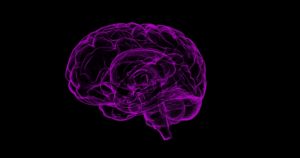- Calls to this hotline are currently being directed to Within Health, Fay or Eating Disorder Solutions
- Representatives are standing by 24/7 to help answer your questions
- All calls are confidential and HIPAA compliant
- There is no obligation or cost to call
- Eating Disorder Hope does not receive any commissions or fees dependent upon which provider you select
- Additional treatment providers are located on our directory or samhsa.gov
Research Seeks to Understand the Neural Mechanisms of Vyvanse on Binge Eating Disorder

While psychotherapy is still the first line of treatment for individuals struggling with Binge Eating Disorder (BED), researchers are working to find other treatment avenues that might be successful. One of these avenues is how pharmaceuticals may be helpful in altering the neurological and biological mechanisms behind the disorder and learning the effectiveness of Vyvanse on Binge Eating Disorder.
Lisdexamfetamine Dimesylate, also referred to as LDX, and more commonly known as Vyvanse, is being studied. The Journal of Eating Disorders published a research article in July of 2019 detailing a study that aimed to learn how Vyvanse can be helpful in the treatment of BED.
What is it?
Vyvanse is a central nervous stimulant that impacts the chemicals and nerves in the brain that can lead to hyperactivity. While most known for its use in treating Attention Deficit Hyperactivity Disorder (ADHD), the United States Food and Drug Administration approved Vyvanse for the treatment of moderate to severe BED in adults in early 2015 [1].
Studies indicate that “overeating in BED may be related to dysfunction of the dopamine (DA) and noradrenaline (NA) systems, increased reward sensitivity, and impulsivity towards food intake [1].”
 Vyvanse increases DA and NA levels, hence the understanding that it may be helpful in treating BED.
Vyvanse increases DA and NA levels, hence the understanding that it may be helpful in treating BED.
Numerous studies have shown that Vyvanse improves impulse control in individuals with ADHD and BED. However, “the exact mechanism of action by which LDX improves binge eating symptoms remains unknown [1].”
It is believed that this occurs via the drug’s impact on the prefrontal cortex, but this has not been proven. The following study aimed to do just that.
The Study of Vyvanse on Binge Eating Disorder
This study examined 44 individuals diagnosed with moderate to severe BED as well as 22 healthy and matched controls. All individuals are given Vyvanse throughout the entirety of the study.
Data was collected from each individual at Week 0 of the study and Week 8 for normative comparisons of the changes over that period of time.
Those individuals with BED receive a “Safety Check” to have their blood pressure and heart rate measured at Week 2, and if determined safe, their Vyvanse is increased to 50 mg/day.
Additionally, on Week 4, BED individuals, again, receive a Comprehensive Safety Check” where their “vitals, weight, drug compliance, adverse events, and frequency of binge episodes” are measured [1]. Depending on the outcomes from this check, their prescription may remain at 50 mg/day or be increased to 70 mg/day.
 Some of the data that is being collected are clinical measurements, such as the number of binge eating days and the Clinical Global Impressions assessment.
Some of the data that is being collected are clinical measurements, such as the number of binge eating days and the Clinical Global Impressions assessment.
Neuroimaging measures are also taken, as well as various measures of impulsivity, quality of life, genetic analysis, cognition, and other psychological symptoms [1].
The Outcome
Truthfully, there is no outcome as of yet, as the article only introduced a study design.
The hope is that the study “will contribute to determining the neurobiological basis for BED, and how LDX promotes changes within those neural mechanisms to reduce BED symptomology [1].”
Only time will tell what results are garnered from this.
References:
[1] Griffiths, K. R. et al (2019). Understanding the neural mechanisms of lisdexamfetamine dimesylate (LDX) pharmacotherapy in binge eating disorder (BED): a study protocol. Journal of Eating Disorders, 7:23.About the Author:

Margot Rittenhouse, MS, PLPC, NCC is a therapist who is passionate about providing mental health support to all in need and has worked with clients with substance abuse issues, eating disorders, domestic violence victims, and offenders, and severely mentally ill youth.
As a freelance writer for Eating Disorder Hope and Addiction Hope and a mentor with MentorConnect, Margot is a passionate eating disorder advocate, committed to de-stigmatizing these illnesses while showing support for those struggling through mentoring, writing, and volunteering. Margot has a Master’s of Science in Clinical Mental Health Counseling from Johns Hopkins University.
The opinions and views of our guest contributors are shared to provide a broad perspective on eating disorders. These are not necessarily the views of Eating Disorder Hope, but an effort to offer a discussion of various issues by different concerned individuals.
We at Eating Disorder Hope understand that eating disorders result from a combination of environmental and genetic factors. If you or a loved one are suffering from an eating disorder, please know that there is hope for you, and seek immediate professional help.
Published October 2, 2019, on EatingDisorderHope.com
Reviewed & Approved on October 2, 2019, by Jacquelyn Ekern MS, LPC

The EatingDisorderHope.com editorial team comprises experienced writers, editors, and medical reviewers specializing in eating disorders, treatment, and mental and behavioral health.

